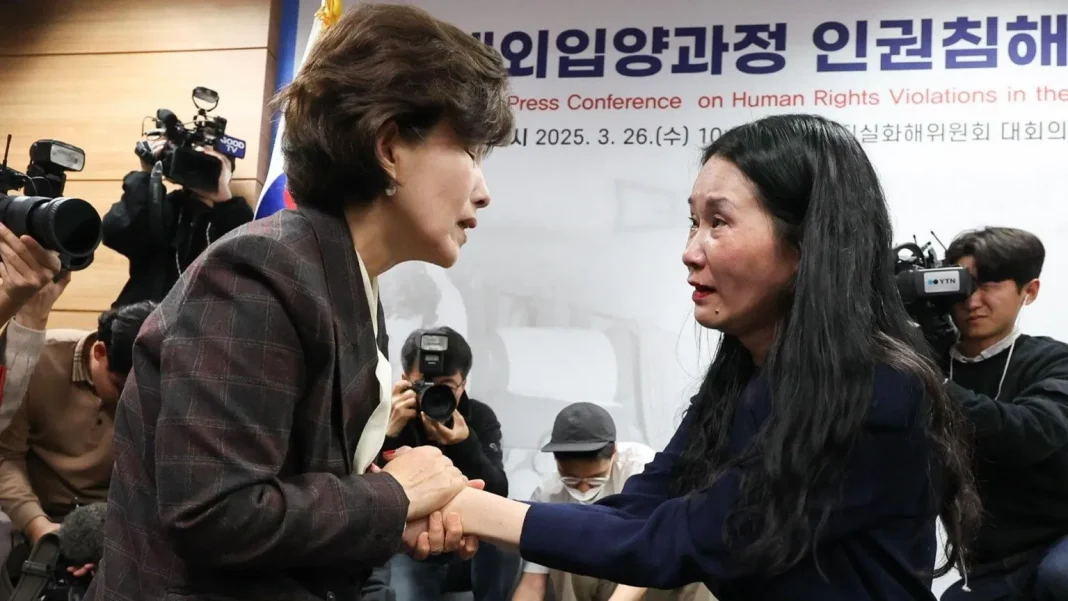A groundbreaking report by South Korea’s Truth and Reconciliation Commission has unveiled numerous human rights violations connected to the country’s controversial adoption program, which, since the 1950s, sent at least 170,000 children abroad, mostly to Western countries. The report reveals systemic failures in oversight that enabled private adoption agencies to facilitate large-scale child exports, often with minimal regulation, profit motives, and severe exploitation. These agencies reportedly engaged in fraud, falsified documents, and coerced birth mothers into giving up their children.
The program’s rapid expansion followed the Korean War, when South Korea was in dire poverty, and adoption agencies were largely unregulated, allowed to charge excessive fees and receive “donations” from adoptive parents. This created a profit-driven industry, where children were sometimes presented as abandoned to justify their adoption, even when the children had living families. Many of the adoptees ended up with false identities, making it difficult for them to trace their birth families or secure legal protection.
In addition to the violations in the adoption process, there were disturbing accounts of trauma and abuse among adoptees. One notable example is Inger-Tone Ueland Shin, who was adopted by a Norwegian couple when she was 13, but later discovered that her adoption was illegal. She spoke out about her painful childhood, marked by neglect and sexual abuse at the hands of her adoptive father. She also described the immense challenges she faced in adjusting to life in Norway, and the lack of emotional care she received. Inger-Tone’s case was one of several investigated by the commission.
The report’s findings have prompted calls for official accountability and a formal apology from the South Korean government. Although South Korea has recently moved to improve adoption processes—such as passing a law in 2023 to centralize overseas adoptions under government control—many adoptees and their biological families continue to grapple with the lasting impacts of this dark chapter in South Korea’s history.
The commission is continuing its investigation, with 367 adoptees petitioning for justice, and it plans to finish its inquiries by May. The inquiry’s findings reflect both the historical injustices endured by adoptees and the ongoing challenges they face in seeking recognition and closure.
Inger-Tone, despite her painful experiences, expressed some satisfaction with the investigation but emphasized the ongoing harm caused by the illegal practices of the adoption agencies. She also voiced hope that such practices would cease, for the sake of future generations.
This inquiry marks a significant moment for South Korea, as it faces its past and the profound impacts of this program on thousands of lives.

